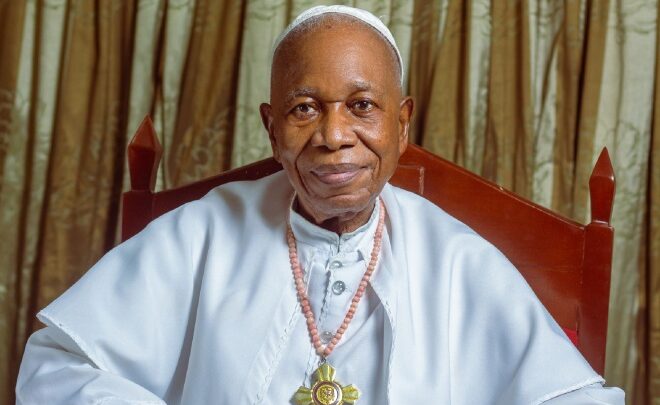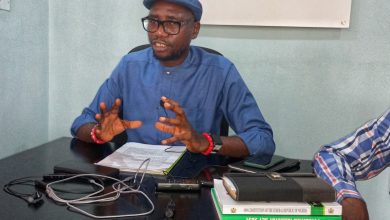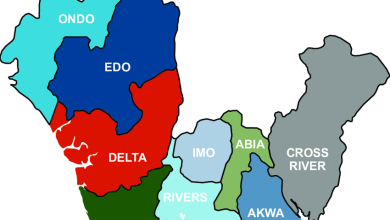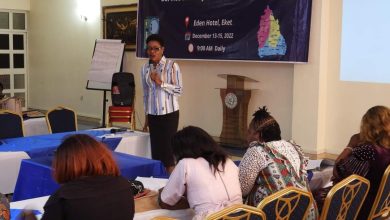
Dr Sunday Coffie Mbang, prelate emeritus of Methodist Church, Nigeria and former president of the World Methodist Council, who clocked 84 on August 26 needs no introduction, within and beyond the enclosure of Christendom.
Dr Mbang’s self-effacing demeanour and global reputation as a Christian leader, peace ambassador, administrator plenipotentiary, disciplinarian and mentor set him apart as perhaps one of the finest, most endowed and consummate missionaries ever to have emanated from this part of the world.
Famed for his fearless and fiery rebuttal of injustice and corruption, Dr Mbang, who is easily the most decorated clergyman ever to have graced the Methodist faith, sits at the top of the very top echelon of living church leaders in the modern era.
Perhaps Dr Mbang’s stellar and most endearing mien in the Nigerian state stems from his ability to seek and speak the truth – especially to power.
Related: Dr. Sunday Mbang’s 84th Birthday: Oku Ibom Ibibio Pays Visit
During Nigeria’s swathes of military dictatorship, Dr Mbang drew global plaudits for his disarming temerity at speaking up against the crude excesses of banal power.
But there is a unique sense in which Dr Sunday Mbang’s 84th birthday seems to exude adulation at such global dimension among Methodists, friends and well-wishers: Dr Mbang belongs to a rare company of humans whose lives mirror the ideal in our collective human heritage, a staple for a box office movie series and some international bestseller title.
Any attempt, therefore, at squeezing such grand pedigree of a man revered as the most prominent figure in the Nigerian Methodist faith into a timed radio broadcast or measured news hole makes a daunting and tedious task. In essence, no single volume would exhaust the many shades of this colossus – one of whose numerous milestones we celebrate yet again, today.
Perhaps such dictional inadequacies in chronicling Dr Sunday Mbang’s selfless disposition and the perceived inexhaustibility of his monumental strides may have informed the metaphorical portraiture of His Eminence by some Christian authors as the proverbial pelican. The pelican has long been a symbol of self-sacrifice, self-giving, self-denying and self-renouncing.
For example, when a mother pelican cannot find food for her young ones, legends say she wounded herself, striking her breast with the beak to feed her young with her blood to prevent starvation. Given this tradition, one can easily see why the early Christians adopted the bird to symbolize our Lord Jesus Christ.
Dr Mbang’s approach to life in several ways epitomizes the pelican. A man of self-effacing modesty, His Eminence has shown scant respect for the dazzling things of the world, preferring instead to deploy and concentrate his energy and immense talents on the solid things of life. Little wonder then why Bishop Paulo Lockman, a former president of the World Methodist Council famously described him as the perfect role model.
Dr Mbang’s parentage and birth in Idua, Eket Local Government Area, Akwa Ibom State, had all the trappings of the divine. His parents were Papa Coffie Eka- Mbang, a Qua Iboe Church pastor and Madam Judith Udo Ekpo.
Although both were of royal blood, they came from different parts of Ibibio community; and by tradition, were not expected to marry each other.
Reportedly, in Ikot Eyo, his mother’s clan, women were allowed to become paramount rulers and were therefore forbidden from marrying anyone outside the clan. His father, Coffie Eka-Mbang, was an Eket man and therefore an outsider. Despite this tradition, Judith and Eka-Mbang came together as husband and wife.
Mbang lost his father when he was 21. However, before that time, the senior Mbang had laid a solid Christian foundation for him through his strong and uncompromising approach to spiritual matters. This nurture Mbang and helped prepare the grounds for his ministerial voyage.
Between 1941 and 1950, Mbang attended the Effoi Group School, Eket; Saint Michael’s School, Aba; Salvation Army School, Akai Eket and Government School, Eket, for his primary education. He studied at the prestigious Methodist Boys High School, Oron, and obtained the West African School Certificate in 1956.
In 1957, he enrolled at the Methodist High Elementary College for a two-year programme, which earned him the Teachers Grade Two Certificate. By 1958, he was a qualified teacher, taking his classroom bow at Edoho Memorial School, Eket.
His university education witnessed the most turbulent days in his academic life. In 1966, Mbang was admitted to the Bachelor of Arts programme at the University of Nigeria, Nsukka.
However, the outbreak of the Nigerian Civil War interrupted his studies and forced him to transfer his studentship to the University of Ibadan in 1968. He graduated with a Bachelor of Arts Degree in Religious Studies in 1971. He then proceeded to the Hebrew University of Jerusalem.
But he would only flee from one civil war to meet another as his education was interrupted yet again in 1973 by the Yom Kippur War. Consequently, Mbang transferred his studies to the Harvard University of Cambridge in Massachusetts, the United States of America, where he bagged a Master of Theology.
He spent three years on the Doctor of Theology programme in Old Testament in the same institution. Mbang returned to Nigeria in March 1978, and engaged as a lecturer in the Department of Religious Studies at the University of Ibadan. He worked for 18 months before being appointed into the bishopric.
It has been thought that Mbang’s longevity is not unconnected with his obedience to the call of God. His call into the ministry came in a very unique manner.
Keturah Mbang, his elder sister, recalls that as a little boy, Mbang exhibited signs that he would follow their father in the ministry. These signs included paying rapt attention to matters of the church, as well as hunger for, and inquisitiveness about soteriology.
However, Mbang first became aware of his calling in 1957 as he watched his father passed on in his bed. He recalled hearing something deep within him telling him to continue and complete his father’s assignment.
Mbang’s career path was clear: but his choice was about the least attractive of careers for any young man at the time.
His friends and family tried in vain to dissuade the young Mbang from leading himself into poverty they had been so acquainted with all the days of their father, Papa Coffie Eka-Mbang, who worked and died a materially poor pastor.
But the gifts and call of God are irrevocable (Romans 11: 29). Today, that same Mbang is unarguably the most prominent, the most widely travelled and the most decorated clergyman and leader ever produced by the Methodist Church.
If Mbang needed any further confirmation of the mantle upon his life, his encounter with Christ during the conference of the Student Christian Movement (SCM) at Ngwa High School in 1960 provided a full proof.
As told by him, “the urge to preach the word suddenly came over me and stayed with me during the entire conference. Along with this came a deep persistent desire for theological education. For me, those things are very important because a kind of supernatural force pushed me into the ministry.”
“That power pushed me and I discovered that from that point on, everything I needed to go into the ministry was smooth sailing. This is the area of my call that I believe is good for people to hear”. The urge, the push and the drive, no doubt, prepared and equipped him for the daunting challenges that were to define his ministry and career. Indeed, Dr Mbang’s most glorious and effective years have been in the service of God and humanity.
Commissioned and dedicated in 1964, Mbang, then a young priest, was first posted to Kaduna and then to Yaba in Lagos.
By 1979, Mbang had been elected Bishop of Tinubu, just 18 months after taking up a lecturing job at the University of Ibadan. Shortly thereafter, the then patriarch of the church, Professor Bolaji Idowu, appointed him his chaplain – an understudy role for the future patriarch and pioneer prelate.
Barely five years later, precisely in August 1984, Mbang was elected the second patriarch of Methodist Church, Nigeria and was installed on Sunday, January 20, 1985 with the daunting task of reconciling the church’s factions resulting from a fratricidal war of hatred and denudation that spanned a period of 13 odd years. Additionally, Mbang was also saddled with the responsibility of reviving a weary and dying church.
The fact that Methodist Church, Nigeria today is growing by leaps and bounds attests to the selflessness that Mbang brought into church leadership.
In fact, the reconciliation in Methodist Church, Nigeria became a trailblazing model in several parts of the world, including distant places like the Island of Fiji, the Caribbean islands and South Africa.
In Nigeria’s secular and political life, Dr Sunday Mbang has made a name for his principled repudiation of the crude excesses of banal power.
Mbang’s emergence as the head of the Methodist Church coincided with some of the worst military dictatorship regimes in our political history; but in spite of the enveloping fear, Mbang never hesitated to speak up against tyranny, oppression, injustice and inequality.
As founder and co-chair of Nigeria’s Inter- Religious Council (NIIREC) with the Sultan of Sokoto, a government body responsible for the promotion of inter-faith dialogue, tolerance and cooperation within the country, Mbang worked for a peaceful coexistence between Christians and Muslims in Nigeria.
As chairman of the Christian Association of Nigeria (CAN) for eight years, Dr Mbang embodied the voice of the Nigerian Christian community at the time.
His Eminence has also received several personal accolades and awards and holds membership of several distinguished institutions and fellowships including the World Methodist Peace Award, the highest Methodist award whose only other recipients include former Presidents, Nelson Mandela of South Africa, Jimmy Carter, George W. Bush of the United States, and Rodriguez Romeo of Bolivia, and the former United Nations Secretary General, Kofi Annan.
He is one of a few African men of God to have been hosted in the Vatican by two sitting Popes, John Paul II and Benedict XVI.
The first civilian from Akwa Ibom State to be conferred with the national honour of Commander of the Order of the Niger (CON), Dr Mbang also served as the vice president and president of the World Methodist Council for 10 years, as well as the second and last patriarch of the Methodist Church and its pioneer prelate for a record 22 years, among a lengthy list of other accolades.
His Eminence introduced the award of knighthood into Methodist Church Nigeria. He also introduced women into ministry in MCN as well as formed the bishops’ council, lay presidents’ council and the Wesley University of Nigeria, Ondo.
His Eminence was one the three men of God in Nigeria to conceptualize the Christian Centre in Abuja and he got the then Nigerian President, Chief Olusegun Obasanjo, to complete and commission it.
Your Eminence, Methodists from all walks of life feel proud and duty-bound to felicitate you on this glorious milestone, for indeed you are a prophet with honour, and even greater honour among your kith and kin.
That is why we make bold today to roll out drums in ecstasy and invite friends and well wishers in rapturous thanksgiving as you mark 84 fruitful years of God’s faithfulness upon your life and the church. We are proud to identify with him on this glorious occasion of bliss and fulfilment.He is an inspiration and encouragement to us all.
Perhaps a few more doses from your longstanding role as one of Nigeria’s intrepid and most eloquent voices of conscience may just be what Nigeria needs at this time to navigate its way out of the morass and quagmire the country is currently enveloped in.
Eighty-four happy cheers to our living legend! May you live longer than 100 years so we could celebrate you more and more.




